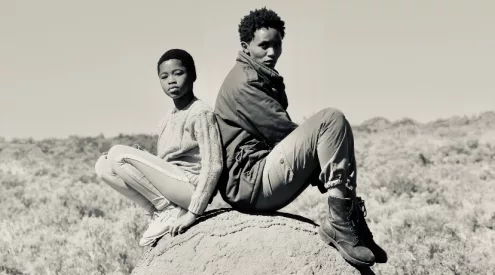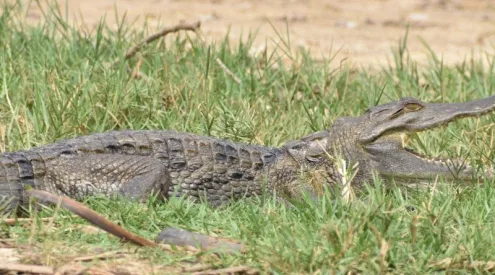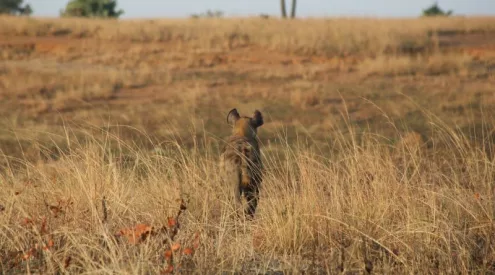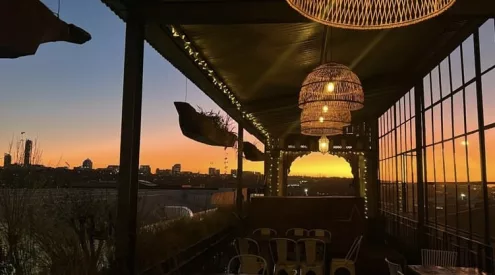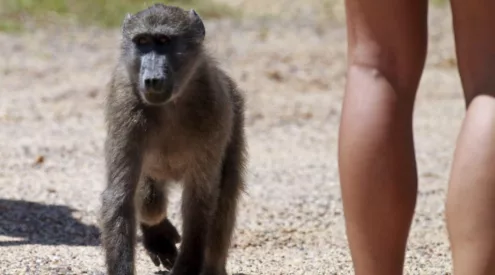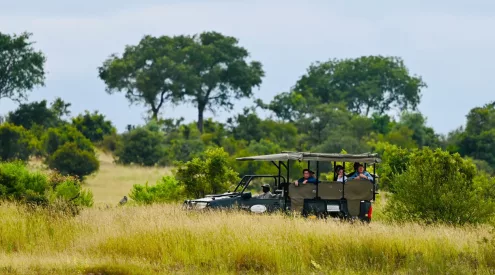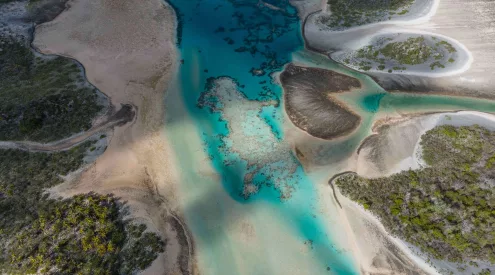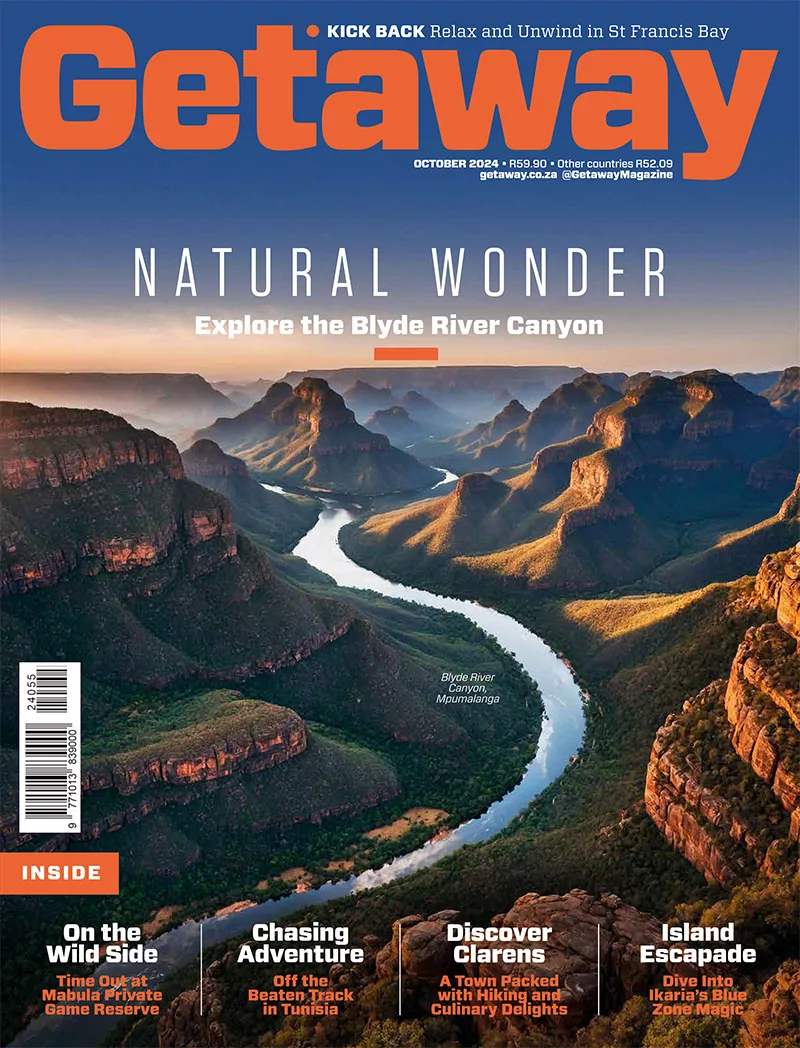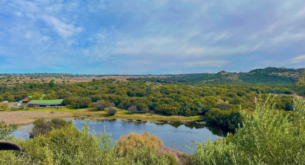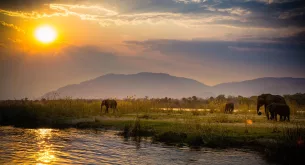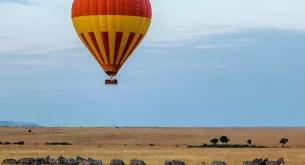While out enjoying the African wilderness, campers, caravaners and hikers create food waste.
Not disposing of food waste correctly can be a disaster as is illustrated in A Primates Memoir by Robert Sapolsky. In his book, Sapolsky describes how the baboons he observes and studies start dying from TB after eating contaminated meat from an open garbage pit near a tourist lodge in Kenya, in the 1980s.
‘Food waste provides a scavenging opportunity thereby attracting wildlife which can become a nuisance. Unfortunately, that’s not all, these opportunities also create a dependency relationship between humans and wildlife and camp and caravan sites,’says Gavin Heron, founder of Earth Probiotic.
To be eco-friendly, on-site composting is a great solution for campers, hikers and caravaners.
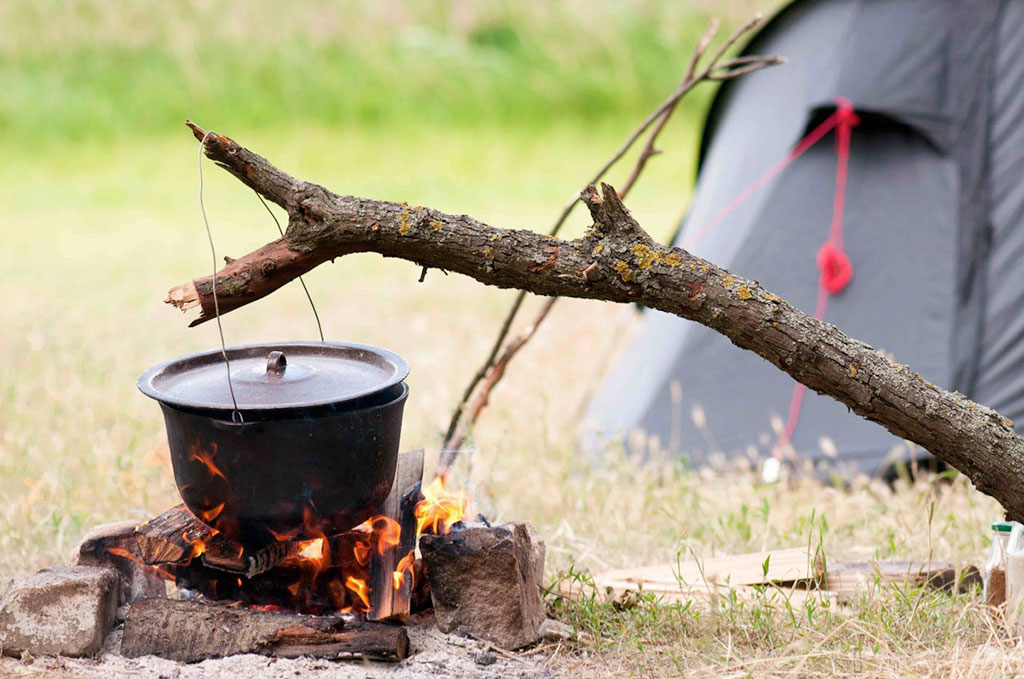
Image supplied
‘Keeping waste in the open and in a waste area is not really an option. It will attract scavengers and no one wants to tangle with a 60kg spotted hyena. We have heard of these amazing animals sauntering into camp kitchens, grabbing a waste bin and then walking out with it firmly clamped in its jaws,’ says Gavin.
Campers on the other hand usually burn, bury or dump their food waste before travelling back home. Burying or burning your food waste presents its own problems.
Burning never completely eliminates food waste, and it also creates a foul-smelling environment. And then, of course, buried food waste can be dug up by animals.
Bokashi food waste composting is an easy and non-smelly option for managing food waste. It is an ancient Japanese process that converts food waste and similar organic matter into a soil amendment which adds nutrients and improves soil texture.
You simply add food waste into an air-tight bin, sprinkle the bokashi inoculant over each layer of food waste and close the lid. The microbes in the bokashi start a fermentation process so that the contents don’t rot or smell.
You can then take the bokashi pre-compost home with you or give the contents to a local community garden who can then use it to enrich their soil.
Here are some practical tips to manage food waste in the wilderness:
1. Camping is all about space and when embarking on your trip, the bokashi bin can be used to store your food.
2. On location, collect all food waste (everything can go in including all cooked and uncooked meat, bones, dairy, onions, etc.) in a plastic bag and at the end of the day add this to the bokashi bin, layer with bokashi and seal.
3. Do this daily until your trip is over and then take the bin back home with you. The container is simply filled with what was in it when you started off – food (albeit decomposing, but at no additional weight).
4. Once home it can either be added to a compost heap or dug into a hole under the drip line of a fruit tree – it will feed that tree with high-value nutrients.
5. You can also feed this food waste to composting earthworms.
Food waste has nutrients that can feed the soil. So when dumping or disposing of food waste, we are not only creating an environmental hazard, but wasting nutrients which could go back to enriching our soil.
Lodges can use composting machines which may be located outside and adapted for solar power. A machine can process up to 5,000kg of food waste per month (including the carbon content). The advantage of in-vessel composting is that it is a closed process and, therefore, resilient to scavenging activity (but probably not elephants). Processing rates can be controlled. And as it is off the ground, the risk of contaminating the soil is eliminated. Best for the soil, for the animals and for the camp where it is located.
Additionally, these machines will process garden/landscape waste, cardboard and egg trays. So not only will a camp reduce its food waste risks, it will also be able to process the additional waste generated by guests and staff.
Processed compost can then be used in the camp landscape or even used to start a vegetable garden (again this will have to be located behind the fencing in the camp so as to reduce it being grazed upon by kudu, zebra, warthog or even hippo).
Ultimately, though, forging a solid wet-waste management process is a key responsibility for operators and visitors in eco-sensitive areas. Rotting food waste is bad for everyone – guests, animals, and staff.
For more information visit earthprobiotic.co.za



